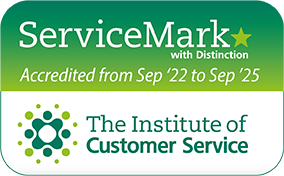If you have received an e-mail asking you to complete a survey from the ICS, please click here to read more about this request.
If you're thinking about moving house, buying your first home, or simply boosting your overall financial health, it's a good idea to consider your credit score and make improvements where possible.
Improving your credit score is often not a quick fix - it's an ongoing process. Some of the tips included this article are more effective if they are actioned in good time ahead of applying for a mortgage, so make sure you do the necessary groundwork in good time.
Mortgage lenders check your credit score to see if you're likely to be able to make your repayments. They do this to try and predict your future behaviour, and decide whether you will be a 'good' customer. If your credit score is weaker than you'd like, your application may be declined.
10 tips to improve your credit score
- Check your credit file - get copies of your credit file from all three credit reference agencies — Equifax, Experian and Callcredit. You can do this for free (but be aware of free trial periods that will charge you after the deal has expired). Once you get your file, check everything for errors. If you think your file is wrong, you can ask the agency in question to correct it. You can then add a notice of correction to your file explaining why it’s unfair or how the circumstances arose. If the credit reference agency won’t help you, you can complain to the Financial Ombudsman. However, lenders also rely on your application form and their past dealings with you, which these credit files don’t contain.
- Do not miss payments - make sure you set up direct debits for payments and make at least the minimum repayment on credit or store cards so you never miss them. It's even better to repay more than the minimum payments, so make manual repayments on top when you can/if you are allowed to do this.
- Ensure your account addresses match - check your address is up to date on all your active accounts (even if you no longer use them).
- Never withdraw cash on a credit card - this will be specifically noted. It is frowned upon by lenders as it is an incredibly expensive way to access cash and a sign that you might be desperate for money or living outside your budget.
- Keep other credit applications to a minimum during the months before your mortgage application. Applications, whether successful or not, are recorded on your file, so avoid applying for anything that adds a footprint (including things like car finance and mobile phone contracts).
- Make sure you're on the Electoral Roll - you can check online to see whether you are already registered and rectify the situation if you're not. For anyone ineligible, (mainly foreign nationals), you can add a note to your credit file explaining that you have other proof of address or residency.
- Break with past relationships - if you've separated from someone, ensure you financially unlink too. If you have had joint finances with someone in the past (including joint billing for a property share with friends) write to the credit reference agencies and ask for a notice of disassociation.
- Cancel unused credit cards - Access to too much available credit, even if it isn't used, can be a warning sign for lenders. If you have a range of unused credit cards and lots of available credit, it is a good idea to cancel the ones you don't need.
- Saving regularly – Use savings to pay off debts if you have them. Lenders like to see regular debts being cleared, this is particularly relevant if you're applying for a mortgage.
- Avoid payday loans - not just because their rates of interest are often dreadful, but because some lenders will reject anyone who has a payday loan, which can indicate poor money management skills.
Aside from securing a mortgage, improving your credit score can have other benefits, such as helping you to access lower interest rates, higher credit limits, and even better car insurance rates.
*Article reviewed September 2023.






